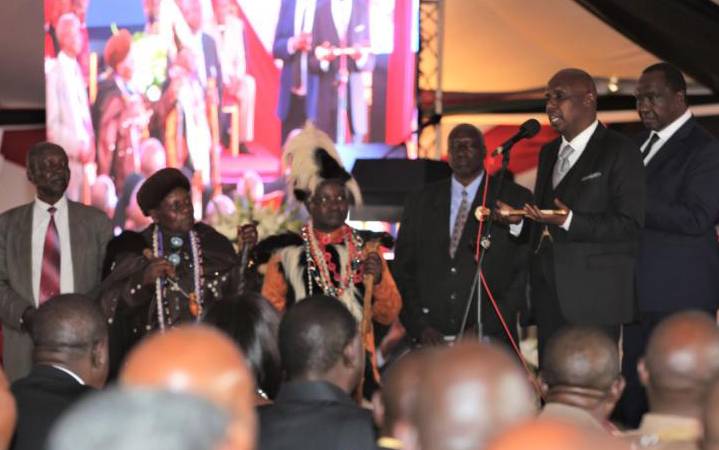×
The Standard e-Paper
Home To Bold Columnists

Raymond Moi (right) witnesses the handing over of leadership Baton to his younger brother Baringo Senator Gideon Moi (second right) by Kanu elders on Wednesday at the funeral service Kabarak University in Nakuru County. [Peter Ochieng', Standard]
The symbolic transition of political leadership to Senator Gideon Moi following the death of his father sets him on a path walked by scions of two prominent families who are now influencing the country’s political destiny.